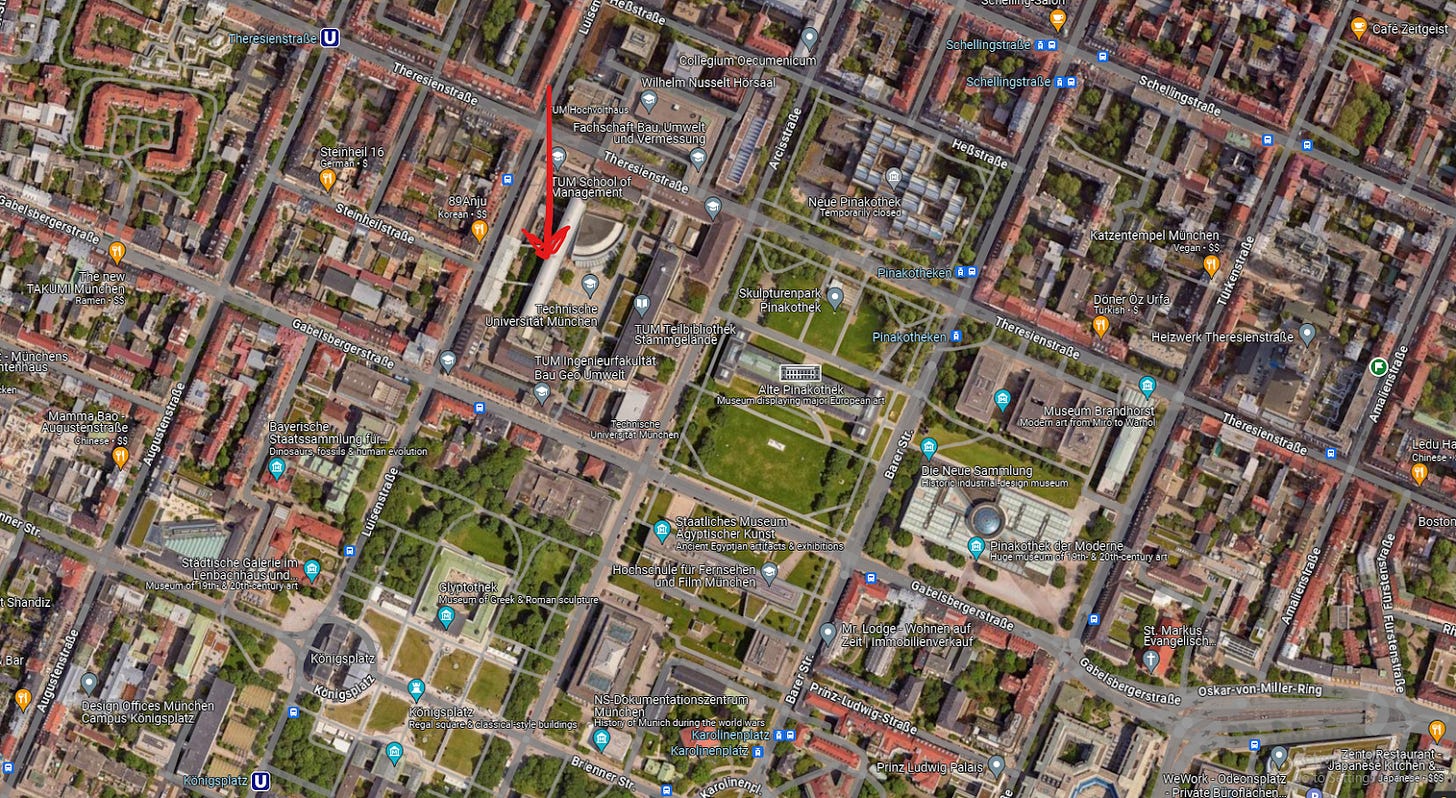Interview series: Software automation before AGI take-over
Software has been able to automate things already but, this is yet to materialize aggressively. Maybe before enabling AI everywhere we can start with that first! For that we talk about networkmatic.
The who?
This week's interview is from somewhere quite personal to me. My PhD chair mate Thomas Szyrkowiec from the Chair of Communication Networks, Lehrstuhl für Kommunikationsnetze (LKN) at TUM. A shout out to all LKN alumni!
During our PhD times we had these PhD seminars where every PhD candidate would give a 30 minute presentation about their research questions and how are they tackling or approaching those questions. What I recall from Thomas' presentation was that he was working on “software defined networking” SDN for optical networks. He was working with ADVA at the time, which was a 600 M € revenue optical network company. ADVA was a European provider of fiber network equipment for data and storage, now part of Adtran. Adtran is an American fiber networking equipment vendor.
For those who are not familiar, software defined networking is the use of software to do networking decisions such as setting switching rules, routing rules, etc. The benefits are clear on paper as it enables to have dynamic rules in a cost efficient manner. However, people are resisting to have such deployments even the improvement that will be brought by software automation is very clear.
The why?
Thomas has a great energy as needed by all the founders to energize and drive things forward. We start the discussion with how it started. I say: “ All the corporate hustlers have this in themselves to start a company. How did it materialize for you?”. He answers by listing the following points:
Ownership
Connections to build confidence to start something
Strategy not being clear in company to drive things as wanted internally.
These three points made me think of some internal dynamics.
All these three things are unique in their way to make people great in different ways.
A colleague that has only strategy without ownership is the colleague that annoys you by telling you what to do all the time. A colleague that has only ownership is the colleague that delivers things, sometimes missing the point of how they will contribute to the big picture and will tell you the instructions were unclear.
It is frequently a struggle to push people without ownership to ownership direction. People without strategy are easier to work with as you can explain short snapshots of strategy and get along sufficiently and iterate.
“Confidence to do one-self” pushes people to work as freelancers or as dedicated roles to do project management and consultancy.
(Random diverse and energic team photo to rest your eyes.)
Thomas also adds two points that are not negligible:
People should not do this for money but more for the fun of it.
Having a co-founder is important to make sure you are not alone and you have a healthy feedback loop.
On the first point, I feel exactly the same as Thomas on this. When I had a small attempt (for a startup) with a group of friends back in 2019, I was telling everyone who asked “What drives you?” that I see this as a game. A game I enjoy playing with my friends. Some people were telling me, you can do a hobby for fun but for this you should show how rational you are about it. People will not trust you if you say you are in for the fun of it. Back in the day, I took it personal and tried to be more professional which made things unnecessarily dry. I think Thomas is very right at the core.
Fun and win is not mutually exclusive, fun (depending on who you are) can be your driver and make things sustainable. That keeps you on the road and you try to learn and make wins!
On the second point, feedback is the key for improvement in everything, you know this through “control systems”. A reliable healthy feedback loop is essential for a goal to be achieved.
Every VC says, you invest in a team, not the idea, and the two points summarizes the reasons well I would say: via two questions “Is it sustainable” and “Do they have reality check from each other?”.
The what?
Thomas was working in intelligent networks providing solutions for network automation in dacoso. In dacoso they provide their solutions on top of ADVA equipment to customers.
Network automation is the process of automating procedures such as security provisioning and management in a network via software. (Definition from Celona.)
Thomas describes his personal experience on how things worked in one of his previous companies as: He had a vision of how things could change in the company and raising what should be done. On the other side there were clear conservative restraints slowing everything down. The adversaries were highlighting again and again without a ”real customer demand” these investments (in the direction he had) should not be made. It also resonates well with some personal experience.
Thomas: People had the habit of setting a light path with pen and paper!
He raised how hard it was to convince people to automate some stuff (which was his role back in the day).
I want to add a personal rant here about the fact that we are so hyped about artificial intelligence while we still resist the possibilities that software automation is bringing. Most of the advances are spearheaded by a handful of people while to bring the gain ubiquitously we have to bring the whole society to a level that can use these advances.
So his vision and the fulfillment of doing something new (is not this, the reason why we wanted to do engineering.) was the main push of starting something. When he explained that he had a business idea to do this on his own, his previous company slowly but surely convinced that this could be a good long term partnership. This was the start of a win-win as the previous employer would get a new service they can sell to their customers without risk and Thomas would be indeed delivering exactly like he wanted.
This was the moment Thomas started networkmatic. Their first customer has been dacoso. They started to act as solution consultant and solution architect. They have 2-3 people that do development. They are completely self financed using the advantage of starting your company with an initial customer.
The networkmatic
He says that they are still figuring out how to sell. The value they are selling is visible in the long run, he says. “In the first year they do a large investment, which is more than what they pay yearly to do these things manually. Only after 2-3 years does it start paying off after which it is only gain. Especially, in a stagnant market people have hard times to explain such long term investment. “
One example is network router update he says. You have to do the updates at night. This can be a large six figure number. If you automate things, you can do this almost completely agentless, he says.
For the small companies we also set up servers, VLANs and DSLAM configurations. We also do non-automating services he underlines. The more you automate the more you remove human error. This is also hard to put a tangible value on but it is something everyone agrees, he underlines.
DSLAM: Digital subscriber line access multiplexer, is a connection point that multiplexes multiple DSL connections to a high speed communication channel.
The personal
I think everyone has a bit of start-up flavor within them. So I ask, “How is it going with respect to what you expected at the beginning?. You were excited to do things the way you want it. Can you really do stuff or the overhead is too much?”.
He says with a large smile, I still can work purely on customers 40% of my time. But indeed, I have to put on the side 50% - 60% to the bureaucracy, invoices, meetings and other internal points and also tracking everything.
I also ask about the hiring procedure as my thought is this should be very much similar to what it is like in a company. He says I try to be as transparent as possible during the procedure, trying not to create any false expectations. But he raises that the market shrinking created some unexpected opportunities of experienced people being available. He underlines that students take too much time to bring up to speed while the graduates are hard to get. Most importantly he says, in a start-up you need everyone at 100%. This cannot be tolerated otherwise and that is what I try to communicate clearly, he says.
He also adds that “I learned throughout this way that I can delegate stuff to make use of my time in a more efficient way. You should really learn to use the services of experienced people.”
Thomas: Do not try to do everything!
The closing
Throughout the interview Thomas had a great energy. He never complained about the problems he is going through but was mainly explaining how he is learning to deal with them. He explained where he had to draw borders and set expectations. Most importantly, it was clear that he is doing this because he wants to show the world how “network automation” should be done. I believe that if he is able to shake off some issues, he has the attitude to build a very reliable network automation company! Wishing the best luck to Thomas on this exciting journey and hoping to learn more from him in future on his new challenges.






